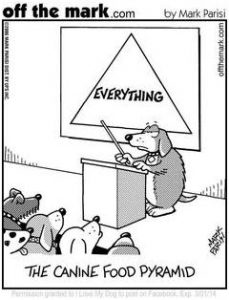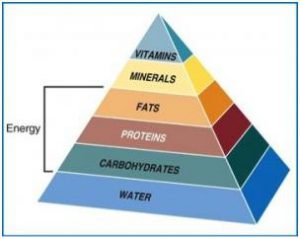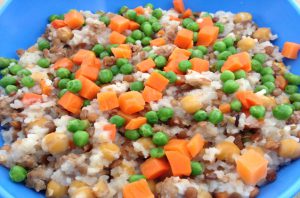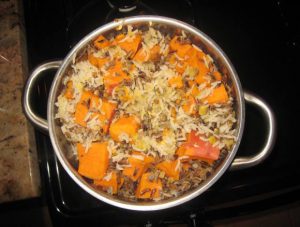50 Homemade Dog Foods You can Easily Prepare
While it is tempting to go the easy route and buy commercially available ready-made dog foods, is it really the best, most healthy and cheapest option for both you and your dog?
With all the awareness and information out in the public about eating healthy and the health and life benefits, is it not safe to assume that the same can be said of our dogs? After all, dogs have evolved alongside human beings for centuries and are fed mostly from our table scraps.
You can also have the peace of mind that you know exactly what your best friend is eating, and don’t have to worry about the long list of sometimes indecipherable ingredients in commercial foods. If you are worried about colourants, artificial flavours and preservatives, this can be a great reason to feed your pooch a more natural diet. All the more reason to go with homemade dog foods.
Over and above this, many dog foods are very simple to make, and can actually save you money whilst eliminating some of the food from your kitchen that may otherwise go to waste. Here are some tried and tested recipes that your dog will love, and that you can chop and change to give your pet a varied diet, full of different nutrients and a spectrum of different interesting tastes.
Firstly you need to understand the basic canine ‘food pyramid’. Dogs are versatile omnivores, although they do require a mix of basic macro-nutrients. While your dog may indicate to you that it looks something like this:
In reality it’s more like this:

Water:
The first important thing to note is the emphasis on freshwater always being available – and while this may seem as obvious as to not be worth mentioning, it actually can’t be emphasized enough. Humans can’t taste water, but guess what?
Your canine companions can! The tip of the tongue which they use to lap up water when drinking actually has receptors for water – so it is important to emphasize fresh water – what may be acceptable to you may actually taste stale and unpleasant to your dog, so change their water at least twice a day, and make sure to clean the bowl out with detergent regularly.
If the sides of the bowl feel slimy, your dog won’t enjoy it, and he can’t tell you so! As a rule of thumb, if you wouldn’t want to drink it, chances are you shouldn’t make your dog do so.
Carbohydrates:
Next on the food pyramid is carbohydrates. Dogs, unlike wolves, have developed more genetic markers coding for starch digesting enzymes called amylase, just like their human counterparts did when compared to chimpanzees! And like us, they have taste receptors for sugars and starches. Despite the popular myth, it’s actually fine if your dog likes potatoes – as long as they are cooked! Would you eat raw potatoes? Of course not. Many dogs enjoy bread, rice and corn especially – but again, make sure any grains are served cooked.

Protein:
While there are certainly plenty of people who feed their dogs on a raw meat diet with success, remember again that just like us, too much animal protein can be damaging to the kidneys, especially in older dogs.
Why? Kidneys are highly vascular organs – that’s why they’re so red in colour. All of the blood in you and your dog’s body has to be filtered through those two relatively small organs, and the by-products of protein digestion – such as urea and creatinine have to be dealt with by them, so be kind to your own and your best friend’s kidneys.
We often forget that many plant foods are also great sources of protein, so if your dog has a penchant for cooked beans and legumes such as lentils and split peas, this supplemented with some soup bones makes a great basis for homemade dog food.
Fats:
Here’s an area where dogs do differ from humans – they do require more of their calories to come from fat than we do, and this is one of the reasons that making sure a decent proportion of their food comes from meat is important.
They also require the essential omega fatty acids – named ‘essential’ because the body cannot produce these on its own; they can only come from food sources. If you are making your own dog food, it is worth investing in a good Omega 3 supplement, especially if you are limiting overall meat intake.
Even so, meats such as beef don’t have a lot of these fatty acids, while poultry has slightly more. If your dog likes oily fish such as pilchards, this is a great source to give from time to time – and most dogs go mad for a tinned-sardine or two!
There are plenty of tinned fish options for pets which cost a fraction of the human variety. These are very high-protein foods of course, so feed occasionally – once a week is more than enough. An even better of course, is where the oily fish got theirs from in the first place – algae and seaweed!
And no – I’m not saying feed your dog sushi! An Omega 3 supplement made from these sources is just a purer source than a fish oil supplement.
Vitamins and Minerals
At the top of the pyramid is vitamins and minerals – and your best go-to source here is vegetables. Green leafy vegetables such as spinach, chard, kale, broccoli, and cabbage – especially red cabbage – are excellent sources, and also provide a powerful anti-oxidant and phytonutrient punch.
Small amounts of broccoli is especially good for puppies and they usually enjoy it very much! Again – always cooked and in small, manageable amounts, just like us, dogs will find an unusually high-fibre meal difficult to digest if they aren’t used to it.
So armed with this knowledge – let’s explore some delicious ingredients that can go into homemade dog food!

For years my mom made our dogs — an enormous Rottweiler, a St. Bernard cross, and a tiny SPCA ‘pavement special,’ a supplemented food from kitchen scraps, flavoured with plenty of soup bones – which are available very cheaply from the butchery at most supermarkets.
This ‘soup’ was served over a bed of brown bread and a few dog biscuits, and they loved it! Providing a good quantity of liquid, especially if you do feed along with dry dog pellets, helps them to expand and swell before the dog eats them, rather than in their tummies, meaning they are also less likely to overeat.
Let’s take a look at 50 ingredients for our doggy ‘soup’:
Main carbohydrates for energy:
- Brown or White Rice
- Barley
- Potatoes
- Corn
- Sweet potatoes
- Millet
- Sorghum
- Oats
- Whole wheat kernels / ‘stampkoring’
- Wholewheat pasta
Starchy vegetables:
- Carrots
- Beetroot
- Turnips and parsnips
- Butternut
- Gem squash
- Pumpkin
- Zucchini/marrows
- Eggplant
- Spaghetti squash
- Lima beans
Veggies for protein, vitamins and minerals:
- Beans – red/ kidney beans, black beans, soybeans etc
- Lentils – red / brown / black / green
- Peas (split peas and green peas)
- Chickpeas
- Spinach
- Broccoli
- Artichokes
- Parsley
- Brussels sprouts
- Mushrooms
Animal protein sources:
- Meat and bones, especially marrow
- Poultry
- Chicken giblets
- Liver
- Tripe
- Fish – especially sardines and salmon
- A Note on Dairy products – some dogs, just like humans, have difficulty with lactose digestion, so if you suspect they are intolerant avoid dairy. Many dogs will enjoy sour milk though, so if the milk in the fridge goes off, you know what to do.
- A Note on Eggs – an egg cooked in with dog food is a dead simple protein boost, but try to avoid raw eggs as some dogs can develop a problem with biotin deficiency from raw egg white. Dogs naturally have much lower ‘bad’ cholesterol levels than humans, and therefore don’t build up much plaque in their arteries. That’s why you never hear of a dog having a heart attack! So worry about your cholesterol intake, not your dog’s!
- Bones left over from the barbeque/roast
- Doggy ‘jerky’ or commercial meat snacks
Fat sources:
- A splash of canola oil when cooking food (high in Omega-3)
- Peanut butter! Dogs adore this as a treat and let’s be honest, it’s hysterical to watch too!
- Oily fish
- Chicken skins
- A note on Chicken bones – if you’re worried about these splintering, you can cook these in with the food and remove particularly sharp pieces.
- Left-over gravy or cooking juices – also great for adding flavour
- Cooking stock made with vegetable oils
- Some dogs enjoy olives, nuts and seeds!
- Bone marrow, fatty soup bones
- Ground flax seed or flax seed oil is great for a shiny coat
Safety and allergies:
If you’re not sure about the safety of an ingredient, research it first. If it’s considered junk food for you, it isn’t good for your dog. Just like us, some dogs have allergies to certain foods- some are sensitive to beef, dairy products and wheat amongst others. If they seem to be having digestive problems eliminate an ingredient which may be causing problems.
But otherwise, all of the above foods can be combined in an infinite spectrum of mixed foods. Variety really is important, not just to keep your dog stimulated and happy, but also to ensure that they meet all of their nutritional requirements. You will also reap the benefit of feeling involved in your dog’s diet and in control of what they consume. And you can be certain that you will be rewarded with wagging tails, shiny coats and wet noses as your thank you!


Pingback: The Importance of Clicker Training For Your Dog